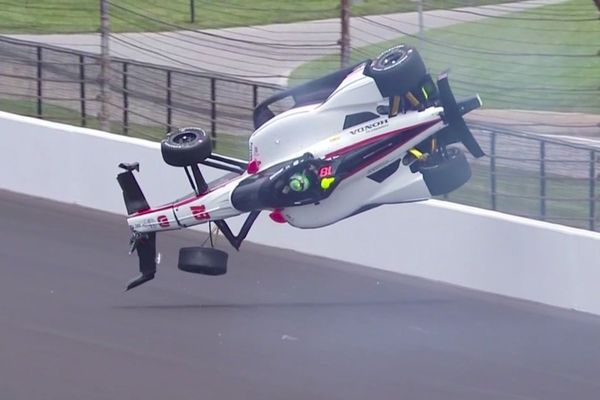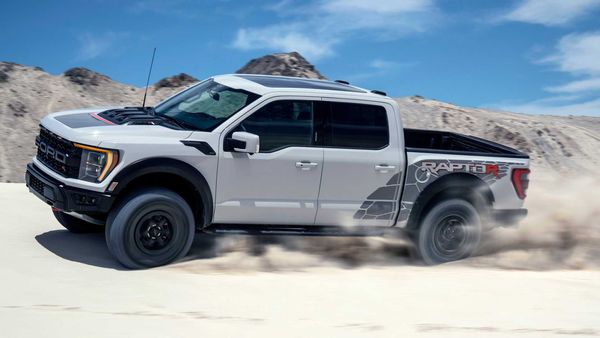
Attention, members of the Mercedes Hyperscreen nation: you will not face a future where Apple CarPlay invades your entire dashboard.
This does not mean that Mercedes-Benz is dropping Apple's beloved smartphone projection system from future electric vehicles, as General Motors is doing. But in a new interview with The Verge's editor-in-chief Nilay Patel, Mercedes CEO Ola Källenius makes a solid case for why automakers like the one he runs would not want to hand everything over to third-party tech companies like Apple.
Get Fully Charged
Car companies struggle to become tech companies
The future of cars will be more defined by electric range, charging times and software features than by hardware functions like handling and horsepower. This means that so-called "legacy" automakers are having to up their software game in a huge way. But not all of them are getting it right.
"The short answer is no," Källenius said of the Apple CarPlay takeover coming to some future vehicles, namely those of Porsche and Aston Martin. "We’re not fundamentalists to say, for some reason, we’re not going to allow a customer to use Apple CarPlay if that’s what they choose to do. We have Apple CarPlay. We have Android Auto... But to give up the whole cockpit head unit—in our case, a passenger screen and everything to somebody else—the answer is no."
However, it goes deeper than just what's on your screen, Källenius said.

"You need to look at it from a bigger perspective," he said. "Everything that’s going on in this digital window into your car and to the world is not just infotainment... Our so-called Mercedes-Benz operating system is really the central nervous system in the brain of the whole car, of which the infotainment is one of four domains."
Källenius said the others include EV battery management, automated driving, and the car's functions itself. Mercedes' upcoming MB.OS, which makes a tepid debut on the 2024 E-Class and a full one on the new electric CLA-Class, brings all of those once-disparate functions under one software "roof," all of which was built in-house by Mercedes-Benz.

For the longest time in the auto industry, countless parts and software modules were farmed out to various third-party supplier companies. This disparate approach, where software and semiconductors came from all over, has made it hard for so-called "legacy" automakers to quickly issue over-the-air updates or introduce new software features as quickly as rivals like Tesla and Rivian.
That approach is quickly changing, and Mercedes-Benz is emerging as a leader in this arena. While the automaker's electric EQ cars haven't exactly been a huge hit thanks to their controversial styling—which Källenius discusses in that same interview—its approach to things like automated driving assistance and AI-powered voice control is among the best out there right now. The Hyperscreen, as complex and gimmicky as it is, is proof of this.
However, even the Hyperscreen works with conventional Apple CarPlay and Android Auto. Yet, according to Källenius, there's a line Mercedes isn't necessarily willing to cross because then the company cedes data, revenue, control, and much more to Apple.
That's especially true now, given how next-gen CarPlay will be able to tap into the car’s sensors to get information. Källenius said it's not a great experience to go back and forth between CarPlay and the native Mercedes system to do what you want.

"If you want to create a superior customer experience, you need to think about that as a whole, and only the manufacturer can tie all of it together," Källenius said. "Nobody out there—none of the tech companies—is even aspiring to do that whole thing. If you want that to be perfect, integrated, and seamless, you don’t want to jump between different worlds."
All of this makes sense from an automaker perspective. GM has similar reasons for dumping CarPlay entirely on future EVs. It's concerned about handing over data, and losing control over the mapping, charging and subscription feature experience. Plus, take next-generation CarPlay to its logical conclusion; does this mean that someday, car companies basically become hardware manufacturers for tech companies? Clearly, they don't want that.
But then there's the other side of the coin: if car companies want to beat Apple, they have to do it better than Apple. And so far, that's kind of a laughable proposition. People love CarPlay because it's familiar and works.

Can Mercedes, GM and the rest deliver a superior experience? Källenius thinks so, but it's certainly not going it alone.
"[MB.OS] is probably the biggest digital in-house product that we have ever made," he said. "We work with the best. Yes, we’re integrating Google Maps. In fact, we are developing with Google, the next generation of what a map in a car married to the driving-assistant system should look like... I fundamentally believe that holistic customer experience is best done by us, and we will serve you."
The whole thing is worth a read or a listen in full.
Do you trust automakers to get this right, or would you rather Apple and/or Google handle everything? Let us know in the comments.
Contact the author: patrick.george@insideevs.com







